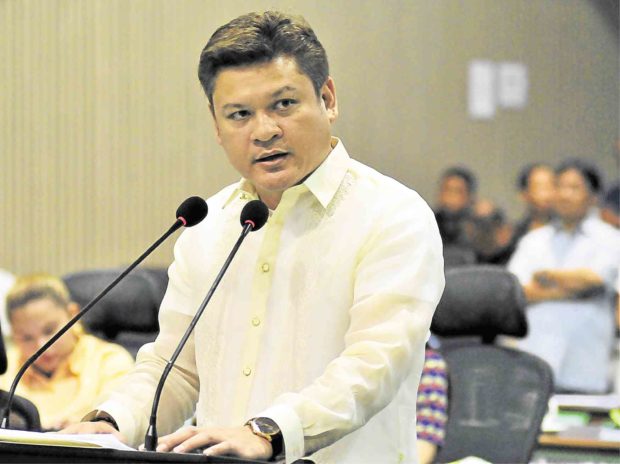With K-12 getting flak, solon pushes bills to improve education

Davao City Rep. Paolo Duterte (File photo from the Davao City Information Office)
MANILA, Philippines — Davao City 1st District Rep. Paolo Duterte urges the House of Representatives to pass bills aimed at improving the education system, especially now that the K-12 system has been getting flak for allegedly not helping its graduates get good jobs.
In a statement issued on Tuesday, Duterte said the House should act on three bills — House Bill Nos. 8069, 7400, and 7370 — to avoid wasted opportunities for graduating students.
HB No. 8069 is the proposed Early Learning Program Act authored by Duterte, Benguet Rep. Eric Yap, and ACT-CIS party-list Rep. Edvic Yap. The bill aims to provide indigent pre-schoolers access to quality education.
Meanwhile, HB No. 7400 and 7370, or the Enterprise-Based Education 2 and Training (EBET) Program Act and the proposed tripartite council to address employment, have been approved by the House on their third and final reading and have been transmitted to the Senate.
“Millions of students that will graduate or have recently graduated from senior high school or college will either get a job that suits their skills or one where they are overqualified or underqualified. But many will still find themselves jobless because their skills are not commensurate to the demands in the job market,” Duterte said.
“This translates into wasted opportunities and lower-than-expected returns on education investments, which negatively affect the productivity and competitiveness of our workforce.”
Both chambers of Congress will have the chance to discuss the proposed measures once the second regular session of the 19th Congress resumes on July 24.
MAP statement
Duterte made his appeal to the House after the Management Association of the Philippines (MAP) released a statement signed by their president, Benedicta Du-Baladad, expressing alarm over the state of Philippine education today.
According to Du-Baladad, many K-12 program graduates take on “elementary jobs that do not pay well.”
As a solution, MAP suggested streamlining the K-12 curriculum to promote technical and vocational learning while inserting microcredentials for students to make them more competitive after graduation.
MAP also claimed that the K-12 program had not achieved its goal of preparing Grade 11 and 12 students for employment after graduating.
The Davao City House representative said reviewing the K-12 system could address MAP concerns — something that his sister, Vice President Sara Duterte, who is also the education secretary, had committed herself to pursuing.
Paolo Duterte also stressed that passing the three bills would solve concerns about students not being well-equipped.
Over the years, there have been several studies indicating that Filipino students — and not only K-12 graduates — have been lagging in educational rankings.
In Southeast Asia alone, it was discovered that the reading and math skills of fifth-grade students in the Philippines were the second-worst, even behind war-torn Myanmar.